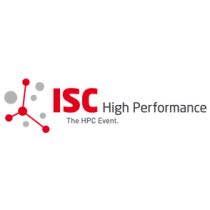 Today the ISC 2015 conference announced the winners of its annual awards, recognizing excellence in the development of energy-efficient supercomputers. The ISC PRACE Award, GAUSS Award, and ISC Poster awards will be handed out at ISC High Performance, which takes place July 12-16 in Frankfurt, Germany.
Today the ISC 2015 conference announced the winners of its annual awards, recognizing excellence in the development of energy-efficient supercomputers. The ISC PRACE Award, GAUSS Award, and ISC Poster awards will be handed out at ISC High Performance, which takes place July 12-16 in Frankfurt, Germany.
The PRACE ISC Award
The PRACE (the Partnership for Advanced Computing in Europe) Scientific Steering Committee has selected “Lattice-CSC: Optimizing & Building an Efficient Supercomputer for Lattice-QCD & to Achieve First Place in Green500,” as this year’s winning paper. The paper was submitted by postdoctoral researcher Dr. David Rohr and his colleagues, Matthias Bach, Gvozden Neskovic, Volker Lindenstruth, Christopher Pinke and Owe Philipsen. Rohr and his cohorts are from the Department of HPC Architecture of the Frankfurt Institute for Advanced Studies, at the University of Frankfurt.
The PRACE award committee evaluated all papers to determine if they met any of the following criteria: a breakthrough in science achieved through high performance computing, an algorithm or implementation that achieves a significant improvement in scalability or performance, or a novel approach to performance evaluation on a massively parallel architecture. In this paper, the Frankfurt University team outlined the challenges of energy-efficient supercomputers and presented an implementation to minimize power consumption. The system, known as the L-CSC cluster, was built from commodity hardware components and is specifically targeted to run Lattice QCD simulations.
The cluster features a multi-GPU design, with four AMD FirePro S9150 GPUs per node, providing 320 GB/second of memory bandwidth and 2.6 TFLOPS of peak performance. The high bandwidth makes it well suited for memory-bound Lattice QCD computations, while the GPU-heavy design ensures excellent energy efficiency.
In November 2014, the L-CSC cluster captured the top spot on the Green500 list with 5,270 MFLOPS/Watt for the Linpack benchmark. The paper presents Linpack optimizations the researchers developed, in addition to other power efficiency improvements, which helped L-CSC reach the record-breaking benchmark. The authors also present an overview of the Lattice QCD application on L-CSC.
The PRACE Award ceremony will take place on Monday, July 13, during the ISC Research Paper session. The winners will be offered a sponsorship for participation in a training event or a conference relevant to petascale computing, as well as the opportunity to present a keynote talk at the awarding ceremony.
The Gauss Award
Prof. Dr. Peter Kogge, the McCourtney Professor of Computer Science and Engineering at the University of Notre Dame, is the recipient of this year’s award for his paper, which is titled “Updating the Energy Model for Future Exascale Systems.” In this paper, Dr. Kogge introduces a major update to the power-performance challenges described in the 2008 DARPA Exascale report. The goal of the 2008 report was to determine if it was possible to achieve a 1000X performance improvement in petascale systems, within a power envelope of 20 MW. Its conclusion was that there was no clear path to achieve that level of energy efficiency based on projected technological advances. The new approach described by Dr. Kogge’s paper re-evaluates the original underlying technology projections, chip layout, microarchitecture approaches, and system characteristics.
This award is sponsored by the German Gauss Center for Supercomputing, which is a collaboration of the German national supercomputing centers at Garching, Juelich and Stuttgart. This paper was chosen as it was considered to be the most outstanding paper in the field of scalable supercomputing. Dr. Kogge will receive a cash prize of 3,000 Euro at the Gauss award ceremony, and the opportunity to present a keynote talk during the Monday, July 13 research paper session.
The ISC Research Poster Award
This year’s winning research poster is on “Performance Enhancement of an Internal Combustion Engine CFD Simulation on IBM BG/Q,” by Dr. Janardhan Kodavasal, a postdoctoral researcher at the energy systems division of Argonne National Laboratory and his colleagues, Kevin Harms, Argonne National Laboratory; Priyesh Srivastava, Convergent Science; Sibendu Som, Argonne National Laboratory; Shaoping Quan, Convergent Science; Keith Richards, Convergent Science; and Marta Garcia Martinez, Argonne National Laboratory. The presenter will receive a certificate and a complimentary pass to the 2016 conference.
Dr. Kodavasal will present his poster during the ISC poster session on Monday afternoon, July 13.
The ISC HPC in Asia Poster Award
The HPC in Asia session, which aims to promote Asian research excellence to an international audience, will be presenting this year’s award to Dr. Fumiyoshi Shoji for his excellent poster on “Long Term Failure Analysis of 10 Petascale Supercomputer.” Dr. Shoji is the director of operations and computer technologies, which is a division of RIKEN AICS, Japan.
He co-authored this poster with his colleagues, Shuji Matsui, Fujitsu Limited; Mitsuo Okamoto, Fujitsu Systems West Limited; Fumichika Sueyasu, Fujitsu Limited; Toshiyuki Tsukamoto, RIKEN AICS; Atsuya Uno, RIKEN AICS; Keiji Yamamoto, RIKEN AICS. The presenter will receive a certificate of excellence and the opportunity to deliver a keynote address during the HPC in Asia session on Wednesday, July 15.
All ISC and HPC in Asia posters will be displayed side-by-side from Monday through Wednesday.
About ISC High Performance
Now in its 30th year, ISC High Performance is the world’s oldest and Europe’s most important conference and networking event for the HPC community. It offers a strong five-day technical program focusing on HPC technological development and its application in scientific fields, as well as its adoption in commercial environments.



